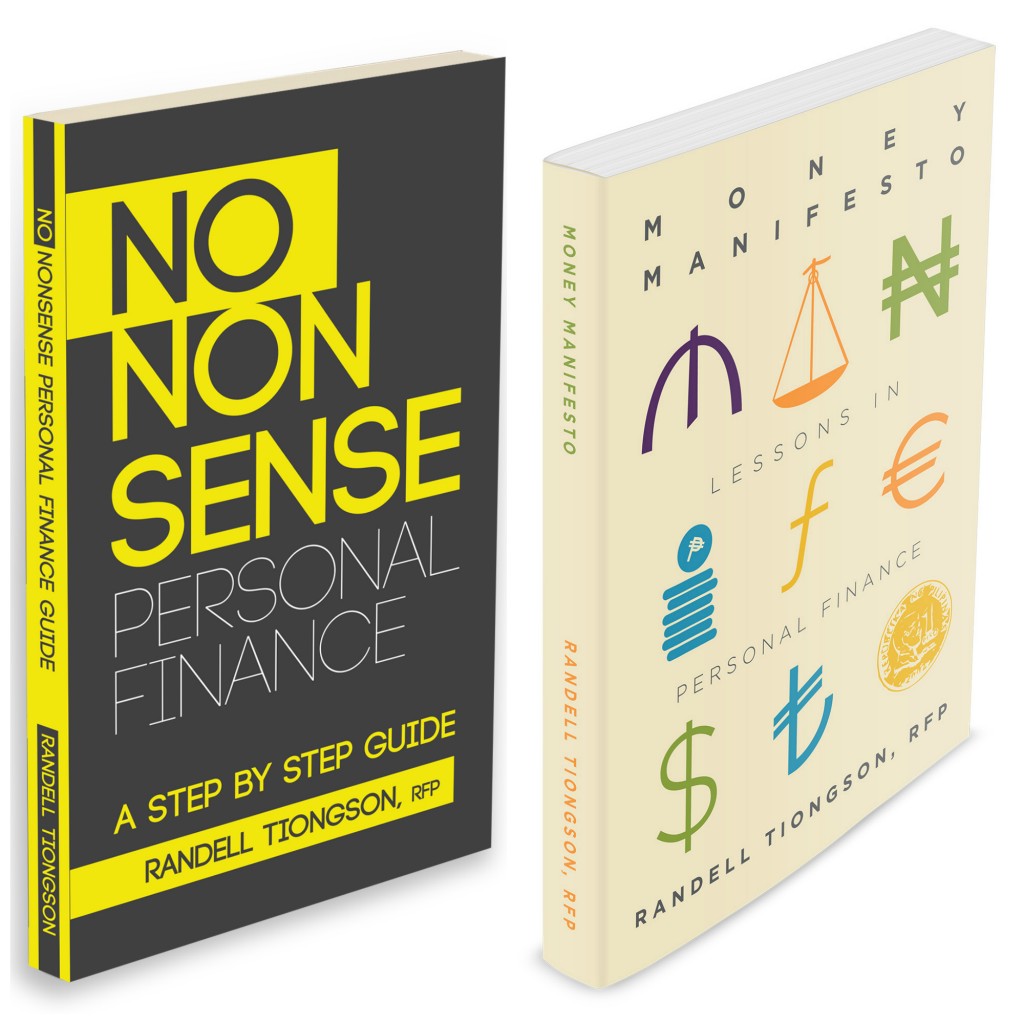Teaching Kids Money
By Randell Tiongson on August 3rd, 2015Question: Hi Randell. I’m a mom of two kids—a 3-year-old girl and a 4-month-old baby. I know that they’re still too young to understand what money is, but my husband suggested that we already start teaching them the value of money. I think this is a good thing. Soon, they will be in school and I want them to use their allowance wisely. What’s the best way to do this?—Dina, from Facebook
 Answer: Dina, I’m glad you’re already thinking about how to pass on important money lessons to your kids—especially since money management is not part of the typical school curriculum. As a parent, your kids will look up to you for these important financial lessons. In fact, research says that kids start inheriting money habits from their parents as early as 7 years old. Early childhood is a great opportunity to pass on healthy attitudes towards saving and investing.
Answer: Dina, I’m glad you’re already thinking about how to pass on important money lessons to your kids—especially since money management is not part of the typical school curriculum. As a parent, your kids will look up to you for these important financial lessons. In fact, research says that kids start inheriting money habits from their parents as early as 7 years old. Early childhood is a great opportunity to pass on healthy attitudes towards saving and investing.
Your kids are indeed young, but if your 3-year-old is old enough to count, then she is old enough to start learning about money. Start by sneaking in some money lessons in a playful manner. For example, nursery rhymes are a great way to start instilling a money mantra. Create a simple rhyme like, “See a coin? Save a coin!” and mimic the act of putting a coin in a piggy bank. Your little girl might not understand what this means right now, but just like “Mary had a little lamb,” this could stick with her for life.
Storybooks are another great way to pass on positive financial habits. I recommend Rose Fres Fausto’s The Retelling of the Richest Man in Babylon, which is a story and activity book that teaches kids the basic laws of money. Go through the activities with your daughter—it’s a great reminder to adults just how simple these laws are.
By the time your kids are old enough for kindergarten, they can already have their own bank account. This will be important in terms of teaching them how to save, and teaching them that money should be protected. At this age, kids don’t understand abstract concepts like mobile deposits. So you need to make the lesson stick by having them do tangible interactions.
Bring the kids to the bank and encourage them to hand the money to the teller while making the deposit. Show them the bank book and explain that this money can grow if they leave it in the bank and don’t withdraw anything. Help them understand that these are savings they can someday use to buy a car or go to college.
Once your kids are in grade school, you can build upon these financial fundamentals by setting mid-term goals—the kind that requires a bit of discipline and teaches sacrifice. For example, if your child wants to buy a bike, explain that she needs to set her allowance aside for a few weeks in order to afford it. To boost her motivation, you can track progress with a visual graph.
Bringing the kids when you do the groceries offers great opportunities to teach smart financial decision-making. For example, you can compare several brands of cereal, and show that the imported ones taste just like locally made ones—but costs twice as much. And that’s why you won’t buy it. When your kids are older, you can give them a budget and a grocery list, then divide and conquer supermarket duties.
Introducing the benefits of charity and tithing is also a good way to teach healthy money habits. Encourage your kids to donate part of their allowance to a charity or non-profit. You can also volunteer your time as a family, or hold a birthday party in an orphanage. Doing charity work at a young age develops the core value of sharing their wealth to others in need, while teaching them to appreciate the material goods they have. Tithing also teaches them about stewardship and that money is really the Lord’s — they are merely managers. Teaching kids the true purpose of money is a great way for them to see and appreciate its real value.
For these strategies to be effective, you and your husband need to be good financial role models to your kids. Your words and actions should not contradict each other, especially while your kids are young. For instance, if you tell your daughter she can’t buy a toy because it’s too expensive, and you turn around and buy something for yourself, it sends her the wrong message.
Besides teaching your kids how to save and budget, it’s important to pass on a healthy attitude towards money. Giving the impression that you’re struggling to feed the family can instill a fear of money in young kids. Avoid sighing when you open your credit card bill or complaining when you take your wallet out to pay for something. Choose your words carefully. Emphasize that when used carefully, money can be a valuable tool to a good life.
It’s never too early to start teaching kids the value of money, and I’m glad you and your husband are already thinking of how best to do this. I’m confident that you will do a fine job in raising money-smart kids.
“Train up a child in the way he should go; even when he is old he will not depart from it.”—Proverbs 22:6, ESV
Get both my books at a discount bundles! Instead of P 1,100 for both books, you can now get it at only P900 with free shipping for Metro Manila (add P100 for provincial address).
Here’s how you can order:
1) Pay the amount via BPI 0249-1113-09 or BDO 006440069496.
2) Take a screen shot of the deposit slip or transaction slip.
3) Email the screen shot to mia.tiongson08@gmail.com along with your complete address and contact number. Indicate in the email if you want the books autograph.
This offer is only until August 7, 2015.





